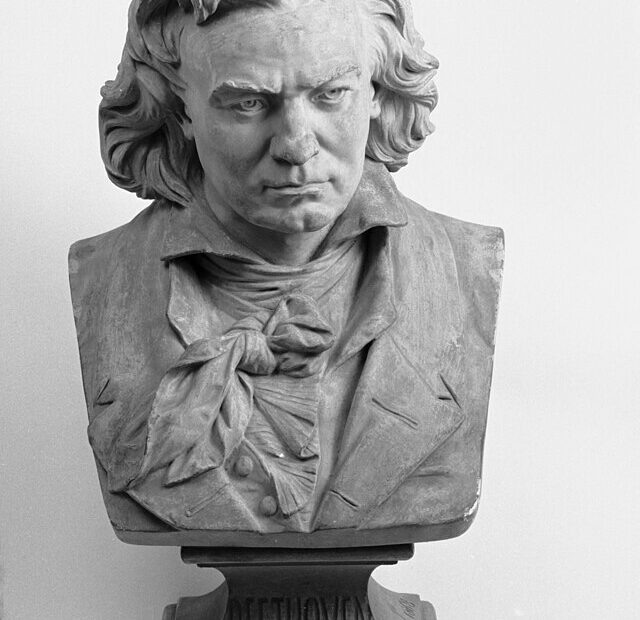
Variations on a Theme: Sick of Beethoven? NEIN!
Variations on a Theme
At this point 250 years ago, Beethoven was a toddler at 3 years old. Born into a musical family, he was expected to be a child prodigy.
Just 2 years later at the age of 5, his father put him through an abusive training regimen that lasted for several years. Beethoven’s father wanted him to be successful child prodigies like the Mozarts and was relentless in his expectation of his son. Read more of his childhood in this article by the Skagit Symphony.
Beethoven’s reputation for a scowl and an angry outburst can be understood and forgiven, once given context of his family life. But beyond this ill-tempered reputation, there was a boisterous sense of humor that Beethoven possessed. In his letters, he often was berating his friends, in a friendly way. Those with whom he felt more comfortable the letters are short and full of humor. Formal letters were long and embellished.
Perhaps his experience with his own father also made it difficult to relate to Haydn. Haydn was kind to Beethoven, but the young composer mistreated Haydn at times. On one occasion at least, he procured money from Haydn by lying to him about his finances. His mentor was forgiving and did not outwardly criticize the young composer Beethoven.
The connection of Haydn and Beethoven effectively passed the “most famous composer” on from mentor to mentee. When a Scottish publisher George Thompson wanted a solid volume of Scottish, Irish, and Welsh folk poetry in songs to be arranged and written down, he first thought of Haydn. But Haydn was sick, so he turned to Beethoven. The result is dozens of folksongs that stand the test of time. Despite the swarm of pieces he had to provide, Beethoven finished the job very well, and the pieces are charming. Read more about is here.
Charming, too, was a piece that Beethoven composed of his own volition. Beethoven’s humor is evident in the piece “Rage Over a Lost Penny”. Beethoven did not name that himself, bestowed by a friend instead. But, it still possessed in it’s original title a silly portmanteau of words to make one made-up word that basically means “Hungarian/Gypsy-ish”. Beethoven called it “almost a caprice”.
Robert Schumann wrote of “Rage Over a Lost Penny” that, “it would be difficult to find anything merrier than this whim… It is the most amiable, harmless anger, similar to that felt when one cannot pull a shoe from off the foot…”
Being in the Pacific Northwest, removing shoes, particularly wet boots, from feet is a common mild frustration. Maybe now we can associate it with this fun piece of music.















